Knockderry Castle sold for £1.25m after 22-year legal battle
- Published
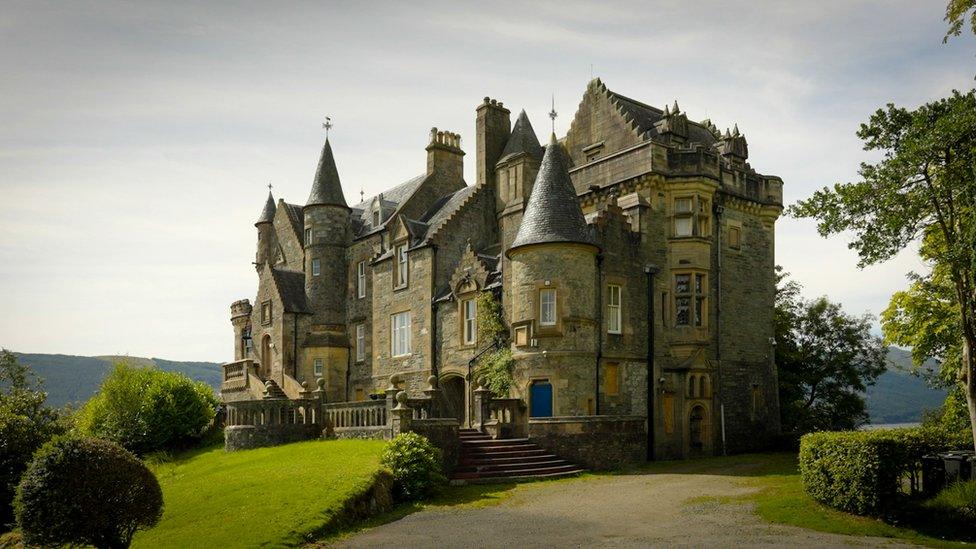
The sale of Knockderry Castle brings an end to a struggle lasting two decades
A Victorian mansion at the centre of one of Scotland's longest bankruptcy disputes has sold for more than £1.25m.
Knockderry Castle in Cove, Argyll and Bute, was the main asset in a 22-year sequestration case that started over a disputed £230 bill.
Former owner Marian Van Overwaele was initially taken to civil court over a 1996 invoice for repairs said to be carried out by a property factor.
As she fought the case, legal fees and outlays grew to more than £1m.
She claimed to have been the victim of a "conspiracy" and a miscarriage of justice, a claim denied by lawyers and accountants attempting to liquidate her assets.
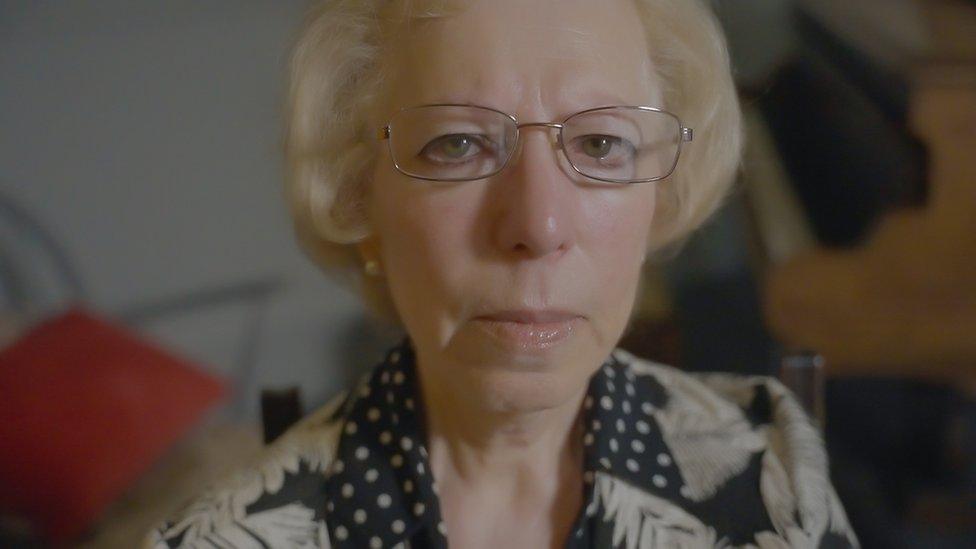
Marian Van Overwaele was initially taken to court over a bill for repairs at her bridalwear store in Helensburgh
Ms Van Overwaele's family were evicted from the property in March last year.
Shepherd Chartered Surveyors, together with Strutt & Parker, have now completed the sale of the castle.
Ms Van Overwaele had owned the castle - which was built overlooking Loch Long in the 1850s - with her former husband since 1979.
Her case started in early 1996 when she received a bill for repairs at her bridalwear store in Helensburgh, West Dunbartonshire.
In BBC iPlayer documentary Battle for the Castle, she claimed she had already paid an initial sum to the property factor, Hacking and Paterson, and the £230 balance had nothing to do with her.
In 1997, the firm took Ms Van Overwaele to Dumbarton Sheriff Court, where a sheriff ruled she should pay the sum plus legal expenses.
Despite the ruling, she continues to insist she had paid the original debt.
She said: "They asked for the money and I paid the money."
A spokesman for Hacking and Paterson said it would be "inappropriate, to comment upon a matter, the facts of which… have been decided by the judicial system".
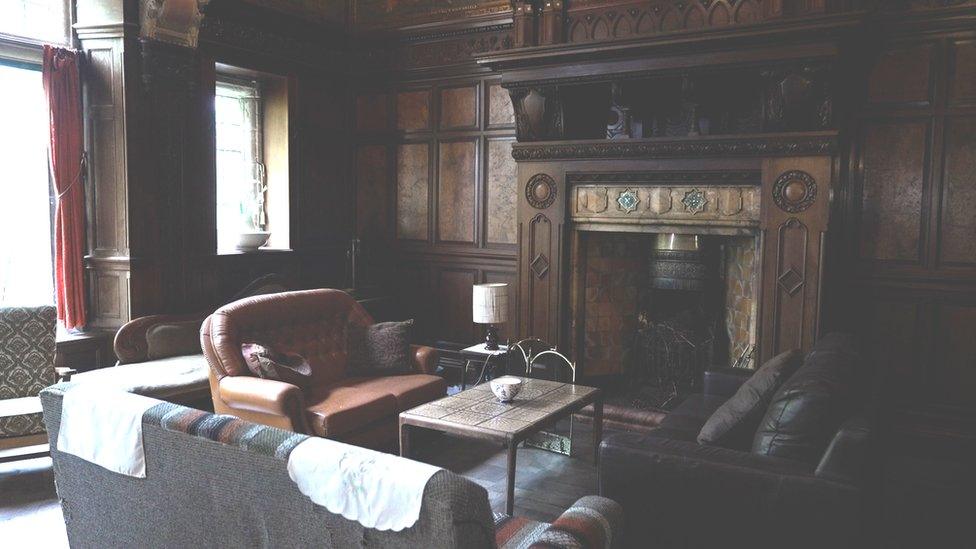
The castle, which overlooks Loch Long, was built in the 1850s
Due to legal expenses, Mrs Van Overwaele's initial debt grew to more than £1,500 - which at the time was the legal threshold to be sequestrated, or made bankrupt, in Scotland.
The factor applied for her sequestration, which was granted in 2000, and a trustee was appointed by a court to use her assets to pay her debts.
However, West Dunbartonshire and Argyll and Bute councils also claimed that Ms Van Overwaele owed them council tax and business rates arrears, bringing her debts to more than £29,000.
In the BBC documentary, Ms Van Overwaele claimed she tried to settle the initial debt with the factor by paying £1,800.
She continued to dispute her sequestration through Scottish courts, while her business was seized and sold in 2002.
"I have done everything," she said.
"I did ask several times, (for) the solicitors to come to settle this matter. This is why I was looking for a solicitor to have the cases sorted out. I was paying by instalments at the same time.
"I never failed to pay the money."
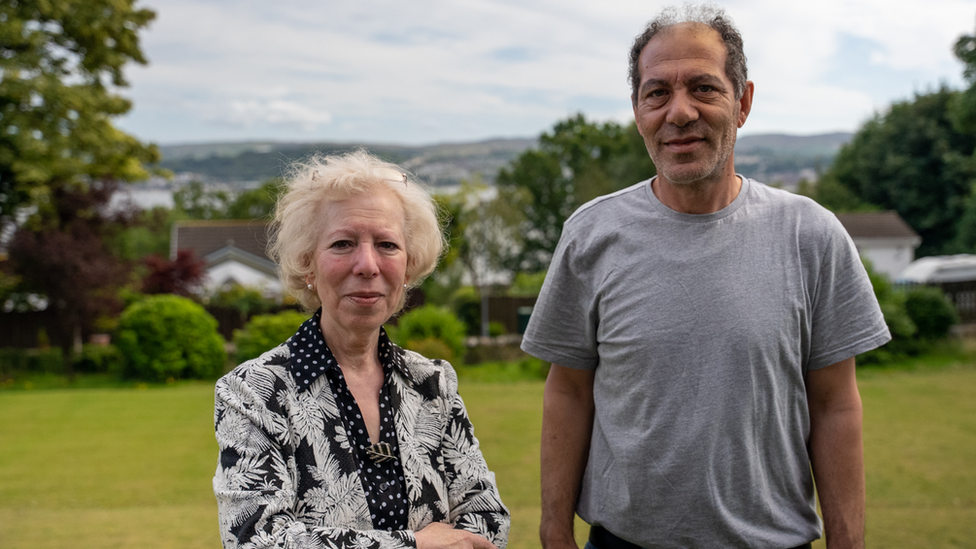
Ms Van Overwaele's brother George Amil insisted he had bought the castle legitimately
In 2009, she transferred Knockderry Castle to her brother George Amil, 55, who said he had legitimately bought the property.
A year later, the siblings were evicted from the castle for the first time, but were later granted access.
In 2017, a new trustee was appointed and, in 2021 a Court of Session judge ruled the sale to Mr Amil had been unlawful.
BBC Scotland understands that by the time the castle was seized a year ago, legal fees and outlays incurred by both trustees had reached almost £1.4m.
Of that, only £52,000 accounted for Ms Van Overwaele's debts plus interest. Accounts seen by BBC Scotland suggest legal fees in excess of £800,000.
Throughout the case, Ms Van Overwaele has maintained that she has been the victim of a miscarriage of justice and a conspiracy to obtain her main asset - a claim fiercely denied by lawyers acting for the trustee.
Meanwhile, numerous sheriffs and judges said Ms Van Overwaele had been using "delaying tactics" and obstruction, with judge Lord Tyre describing the case as having a "long history of attritional litigation".
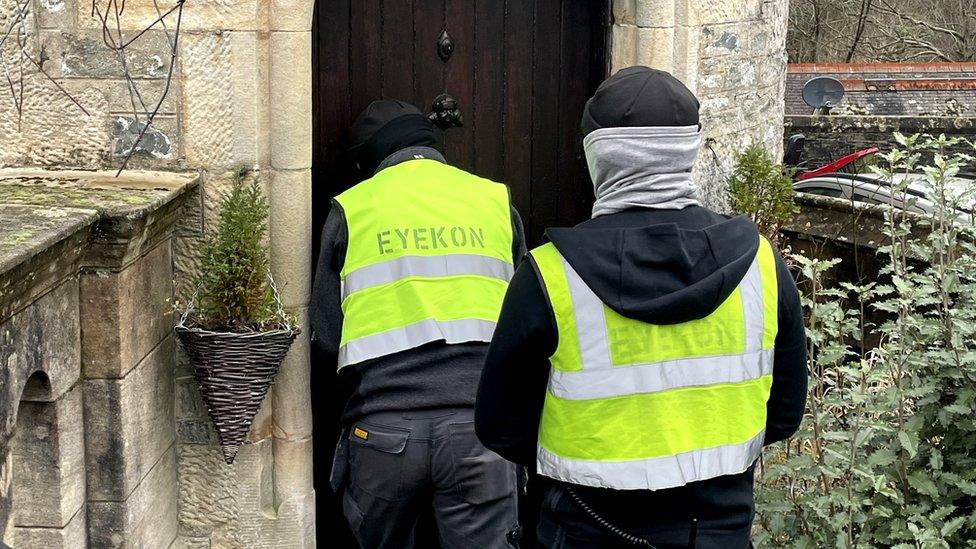
Sheriff's officers broke into the castle earlier this year and removed Mr Amil and his family
In March last year, father-of-three Mr Amil and his family were evicted from Knockderry Castle by sheriff officers. By the time he was removed from his home, he had lived there for 12 years and had tried to maintain the property.
A home report commissioned by Mr Amil revealed the castle needed extensive repairs in almost every area, its valuation was listed as "zero subject to satisfactory quotations and estimates" and it was "unsuitable for secured lending in its current condition".
Mr Amil said: "Now we are homeless, using Airbnb. Moving from place to place.
"It's a big building. Big responsibility. Quite expensive, too, to maintain. I tried hard to do everything I can, but the legal battle was stopping me and taking my money, my energy.
"Every single penny we took, we spent on this legal battle."
'Last resort'
His sister, Ms Van Overwaele, said they had "lost everything".
She added: "I will be very, very upset all my life. The rest of my life.
"This is really my life. This is where I lived and I chose at the end of my life. And with my age, it is hard."
The current trustee declined to comment. His law firm, Livingstone Brown, said that Ms Van Overwaele "obstructed progress of the court actions".
It continued: "This action became protracted largely due to the debtor's delaying tactics and procrastination, and this resulted in the trustee incurring significant litigation costs of solicitors, Edinburgh agents and counsel.
"The trustee had no wish to sell the castle if that could be avoided, and viewed the sale of the castle as a last resort."